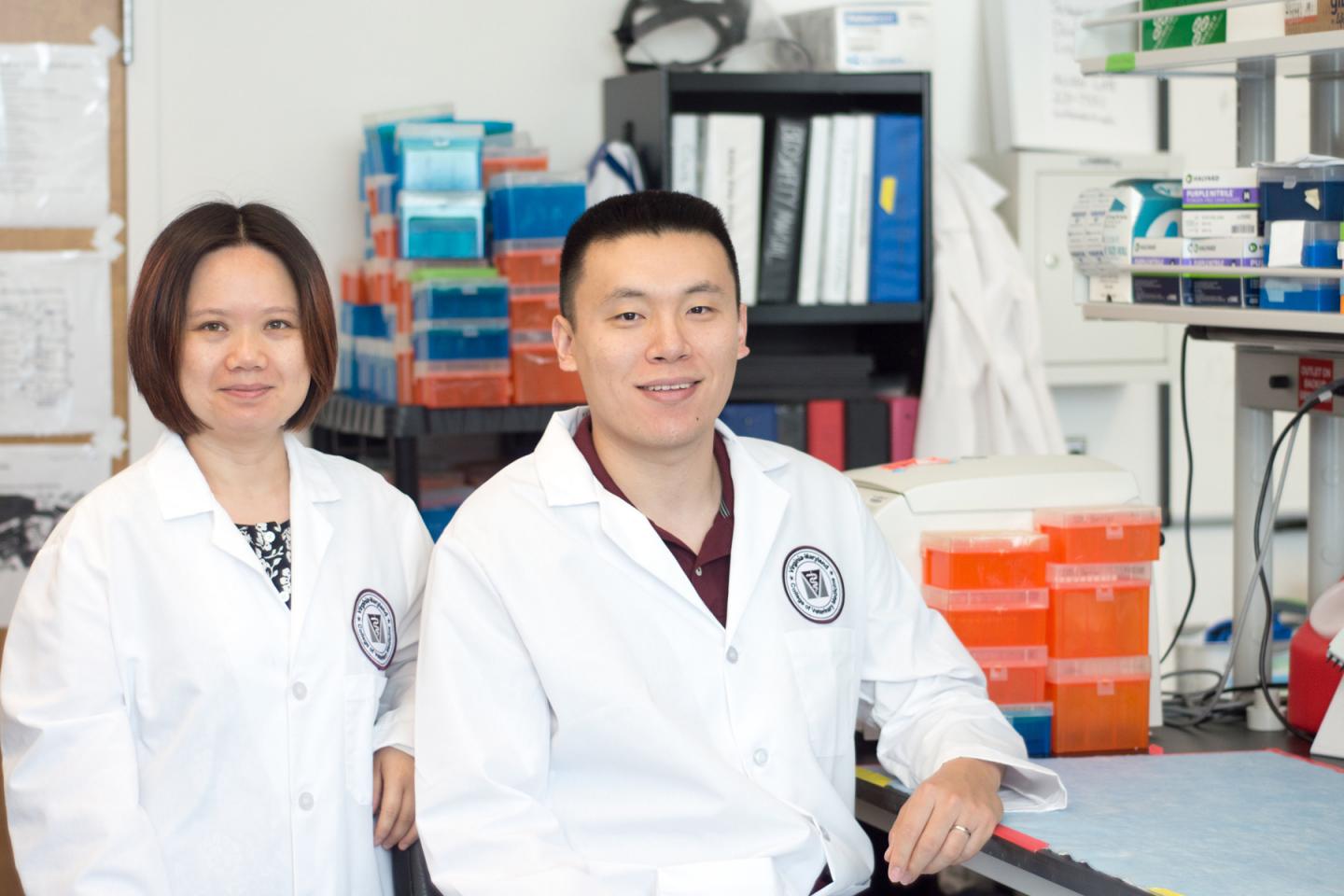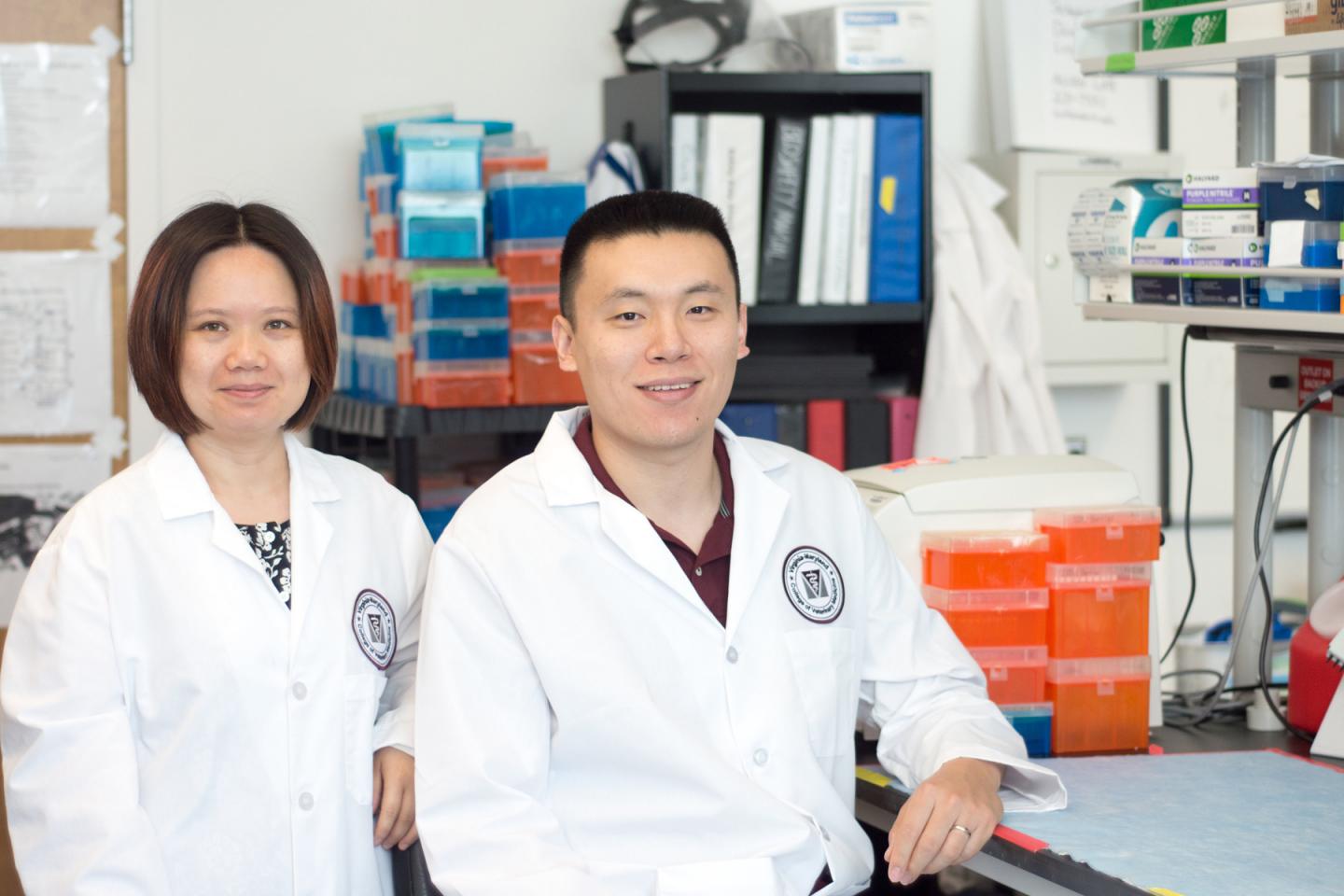
Credit: Virginia Tech
Researchers at the Virginia-Maryland College of Veterinary Medicine at Virginia Tech have released findings that explain how a type of healthy bacteria in yogurt and other dairy products might reduce disease symptoms in certain patients with lupus.
Xin Luo, assistant professor of immunology in the Department of Biomedical Sciences and Pathobiology, and her colleagues expanded upon earlier research linking a lack of Lactobacillus, which produces lactic acid and is an important part of gut microbiota in both humans and mice, and autoimmune diseases such as lupus. The new research describes the mechanism behind this association.
"In our 2014 paper, we found that mice with lupus had decreased amounts of Lactobacillus, which led to our hypothesis that adding this bacteria could ameliorate disease symptoms," said Luo, who added that she and her colleagues also found that the mice had a "leaky gut," a condition that affects the intestinal lining. "Probiotics, such as Lactobacillus, work by patching up and reversing the leaky gut."
Lupus is an autoimmune disease that can cause chronic fatigue, joint pain, rash, fever, renal failure, and even death. It affects an estimated 3 million people in the United States. Luo's recent study deals with lupus nephritis, or inflammation of the kidney that is caused by lupus.
According to the National Resource Center on Lupus, lupus nephritis usually develops within the first five years after lupus symptoms start, and as many as 40 percent of all people with lupus, and up to two-thirds of children with the disease, will develop kidney complications.
"In addition, we found that the addition of Lactobacillus to the diet only affected female mice and not males," said Luo, who explained that lupus is 10 times more prevalent in females than in males. "We think that testosterone is suppressing the effect of the healthy bacteria. Before our study, researchers had never looked at male hormones suppressing the probiotic effect before."
The research team included Qinghui Mu, a Ph.D. student in the biomedical and veterinary sciences program and recent recipient of a prestigious American Association of Immunologists Careers in Immunology Fellowship, and S. Ansar Ahmed, professor of immunology and associate dean of research and graduate studies at the veterinary college. Ahmed is also one of the leading authorities on the effect of hormones on lupus and other autoimmune disorders.
Although the research was limited to mice with lupus and kidney inflammation, and more work would need to be done to determine whether Lactobacillus has the same effect in humans, Luo emphasized that yogurt and probiotic supplements are considered safe.
"If a lupus patient is female and also has kidney inflammation, there would be no harm in adding yogurt or a probiotic supplement to the diet," she said.
Now that researchers have identified the "good" bacteria that affects the severity of lupus, they hope to turn their attention to other areas of research.
"The next question is, 'Are there bad bacteria that can be detrimental to the disease?' " Luo asked. "If that can be found, we can target the bad bacteria and remove them to ameliorate disease symptoms."
The paper, "Control of lupus nephritis by changes of gut microbiota," was published in the July issue of the journal Microbiome and is available online.
###
Media Contact
Alison Elward
[email protected]
540-231-7969
@vtnews
http://www.vtnews.vt.edu
Related Journal Article
http://dx.doi.org/10.1186/s40168-017-0300-8





